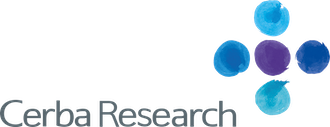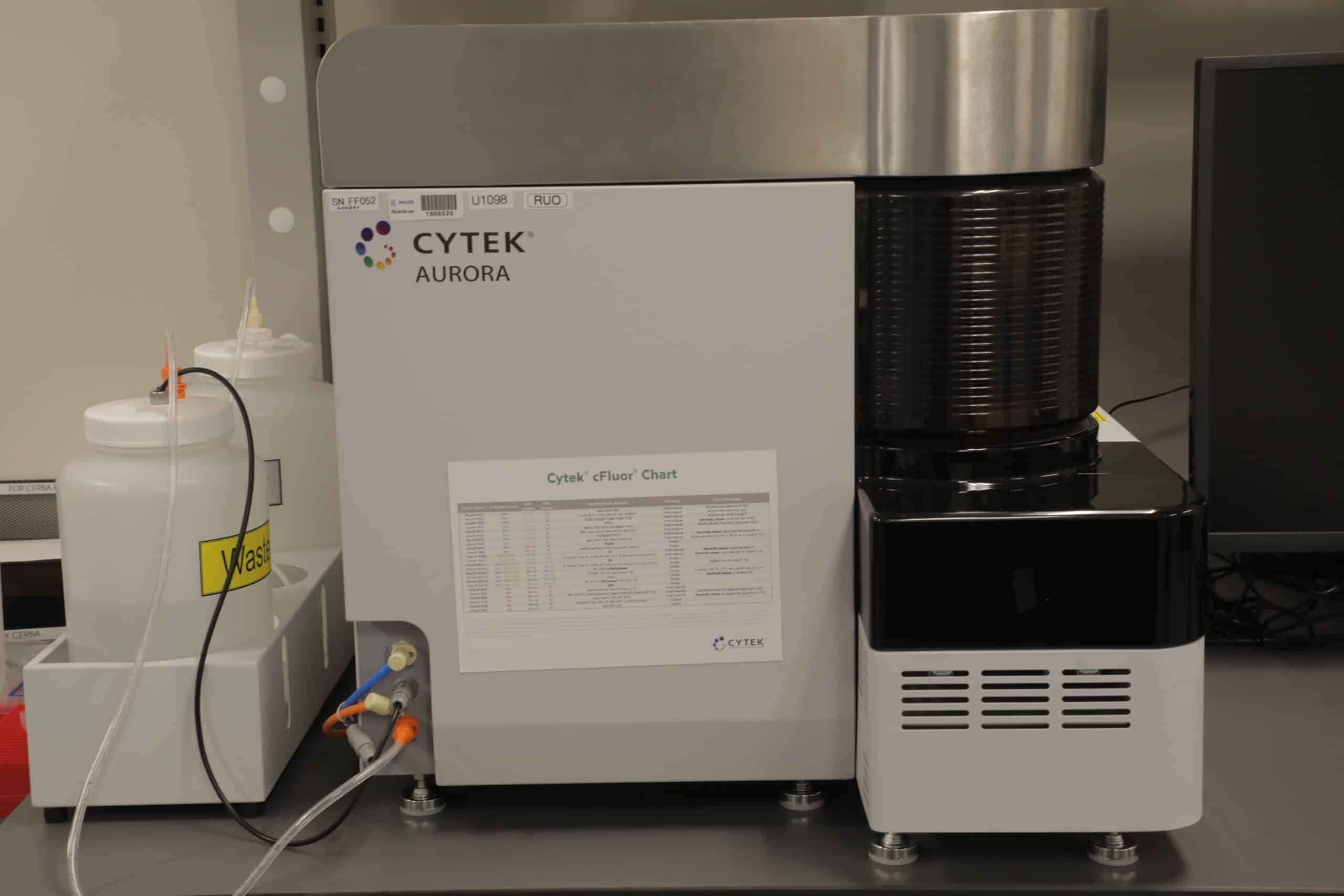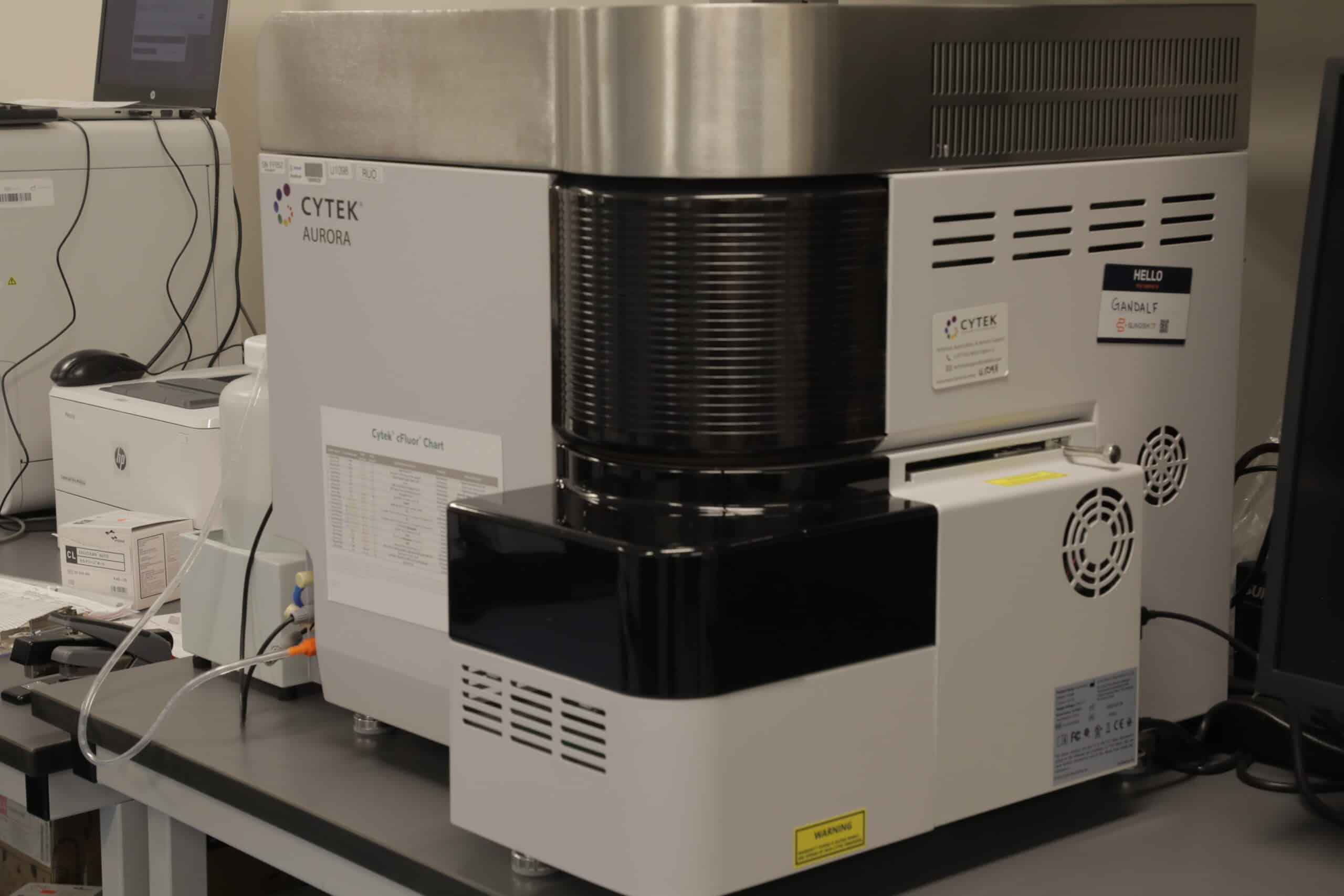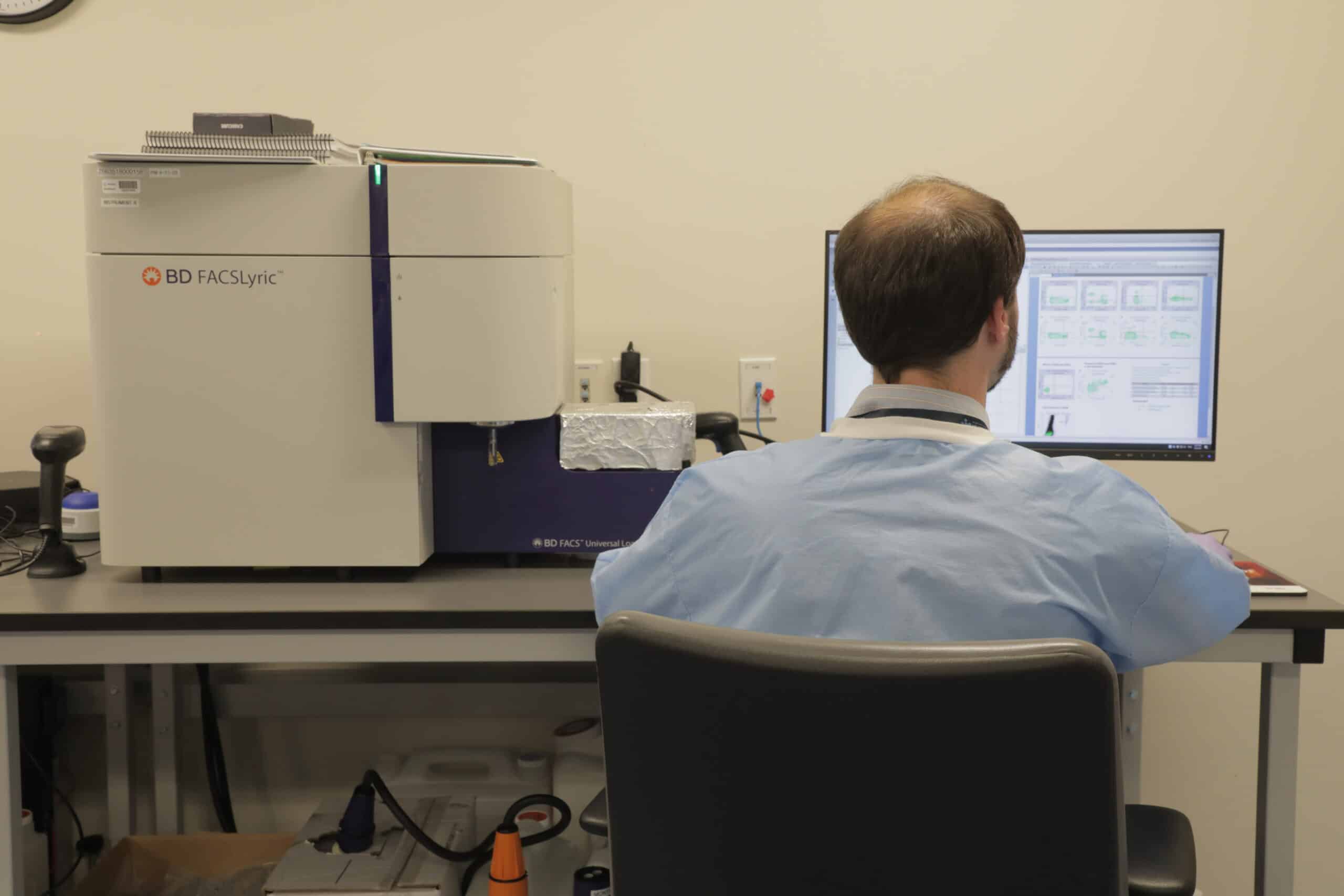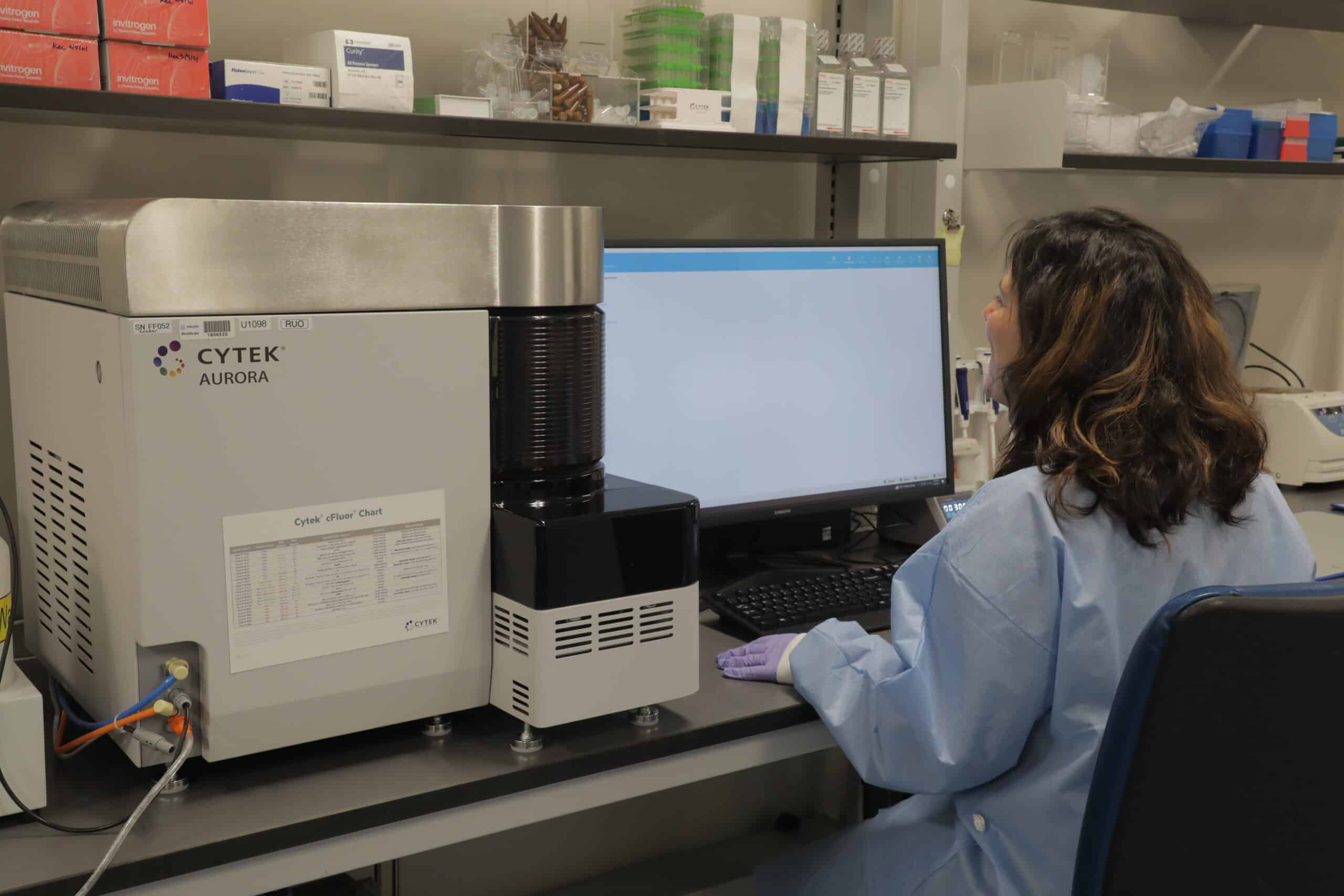Explore the intersection of high-parameter spectral flow cytometry and global clinical trials through our meticulous process at Cerba Research, Ghent, Belgium, and Cytek Biosciences, California, USA. We delve into instrument standardization’s critical role for transparent results across labs and introduce innovative methods for implementing and standardizing Cytek® Aurora Instruments.
Witness our multi-step process, evaluating optical alignment, system resolution, laser and detector stability, and analytical validation. Our in-house workflow ensures precision, with deviations well within acceptance criteria. Discover the effectiveness of SpectraComp® beads for spectral unmixing, reducing errors and optimizing workflow.
Join us as we demonstrate instrument comparability and consistent performance, propelling forward the standardization of Cytek® Aurora Instruments for reliable insights in global clinical trials.

